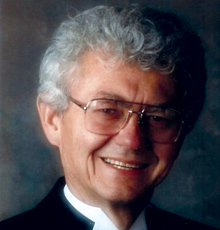
Having walked for over 50 years through many turnstiles of life, many under the rubric of senior living, I consistently return to one conclusion: a sincere, unpretentious compliment to a resident of such a facility is often met with the return phrase, “You made my day.”
Let’s take a couple of minutes to note the need for an encouraging oral or written nod in a senior care facility, often a difficult environment because of high-acuity illnesses and impediments to two-way communication.
Care Levels
It is a given within senior living care facilities that there are various ranks of providers to assist seniors, from specialties requiring advanced degrees to those with minimal national, state or institutional requirements. Still on the desk of researchers is the question of whether a specialist or a generalist is more successful in caring for senior patients.
They are working with residents who have varying degrees of illness, even when they share the same condition. Common sense suggests the severity level increases as one moves from independent living to acute and long-term care settings.
Societal Pressure
The “Me Too” movement may affect the outward act of complimenting a male or female. Men of my acquaintance — talking over a martini — feel an overt compliment given to someone of the opposite gender may now be interpreted as a ‘come on.’ A female reading that assertion in a senior retirement community might scoff, “At our age?” In any case, some men in their later years are being more careful in words and personal space.
Caregiver Interactions
The individual caregiver also plays a role in the free flow of compliments, bottom line. For about 10 years, while visiting my wife, Dee, in her room daily, I kept a notebook with statements made to her by caregiving staff. Dee had Parkinson’s and moved through the continuum from independent living to assisted living to hospice.
Caregivers are overworked, underpaid and often immigrant women, 99% of whom brought my wife smiles each day. Some comments included:
“What a lovely blouse you have on today.”
“You did well yesterday on the NuStep; let’s do it again today.”
“Your husband spent time in China. Your dress suggests you had a good time while there.”
“Welcome to the day; Your smile always says ‘Good morning’ to me”
“Good morning! I know you like to read. Here’s a copy of a good news story.”
The young people who entered my wife’s room were the warmest, and most likely to give compliments of all who entered. To help Dee engage with them, I printed out greetings so that she could say hello in their native language, whether they were from the Ivory Coast, Ethiopia or Germany. It built an immediate rapport with an unbelievable positive response from the caregivers. And it was fun.
Medical assistants and aides who took my wife’s signs and conducted other procedures varied more in their comments and compliments. Often the focus of their words became a non-human object — a reading, a location — rather than Dee herself. Here, their comments:
“Beautiful! Yesterday your blood pressure was higher. Much better today”.
“You’re in my favorite room, doing so well.
“Congratulations! Your reports were the best of the week.
“Well, I hope we can do better this week.”
I placed true specialists, of which I am one, last in positive attitudes. Not once in over six years did an M.D. visit my wife. My examples below are limited to other professionals:
“Well, how are we doing today?”
“Time to get up; it’s bath time and physical test time.”
“Last time you walked over to me. Why not today?”
“You’re a sweet lady. Let’s try to improve.”
“I shall help in any way that I can.”
Why were they so brusque? Causalities are hard to prove, but maybe we fall to nods or silence to replace sincere greetings as a propensity of our professions.
After watching Dee and my fellow residents light up at a heartfelt acknowledgement, my mantra has become: Never let a day pass without an honest, sincere compliment or warm greeting to those whose life needs a warm written or oral semantic compliment.
Herb Hildebrandt Ph.D.,, is resident of Trinity Health’s Glacier Hills Senior Living Community in Ann Arbor, Michigan.




